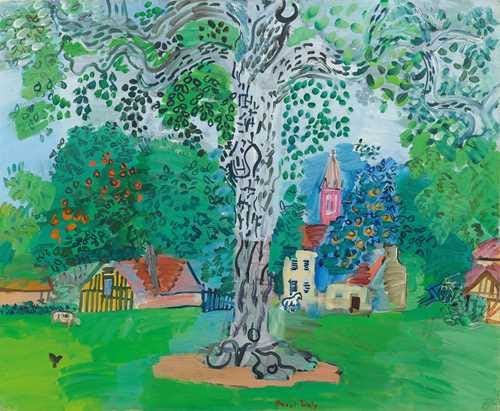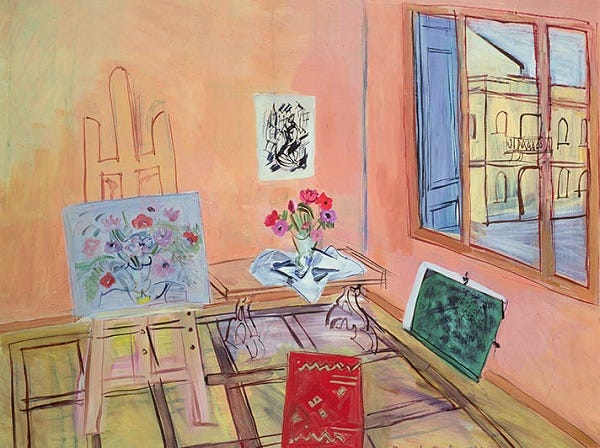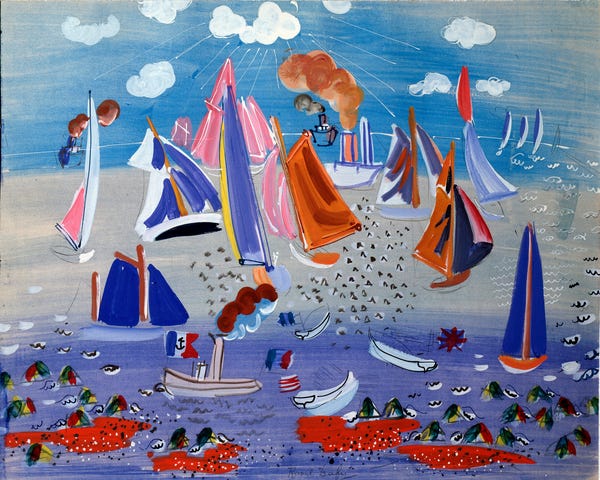I’ve been thinking a lot about Leslie Stephens’ idea that “thinking about death is how we become more alive.” It’s a beautiful sentiment—clean, precise, deceptively simple. And yet, when you’re inside of death, when it’s circling your father like an invisible fog, when it’s in the room even though no one speaks its name—you understand that this idea isn’t poetic abstraction. It’s brutal. It’s holy. It’s terrifyingly true.
My dad is dying. (Aren’t we all?) But his dying has a name—glioblastoma—and a number—five percent. A diagnosis that arrives like a meteor, obliterating the sky and leaving only smoke behind. I won’t go into the details. It’s not mine to share in full. But I will say this: he’s too young. Not in the numerical sense—he’s 67—but in the way a person can still have too much life left to give. He is a man with kindness stored in his pockets like loose change. A man who makes his grandchildren laugh without effort. A man who believes that small things—listening well, asking questions, showing up—can be the whole point.
So here we are: my father, dying; me, learning how to live.
The term for what I’m feeling is anticipatory grief—a clumsy phrase for something impossibly vast. It’s the grief that arrives before the loss, that haunts the waiting. It’s sadness, yes, but it’s also vigilance. Fear. Longing. A stubborn hope that flares up even when you know better. It is the ache of watching someone you love slowly be stolen from the world while still standing inside it.
But there’s something else. Something less easily named. There are these moments—when I’m helping him with something small, or he looks at me in that way only he does, or he makes a joke in the middle of a hard moment—and I feel split open with gratitude. I am here. He is here. And I know, with a clarity I have never known before, that all of this is temporary. All of it.
Leslie writes about the moment she realized she would die—how it dropped into her life not as an idea but as a visceral knowing. Her face would decay. Her eyes would rot. And yet, this moment, this awful clarity, became a hinge in her life. A before and after. I’m living my own version of that moment, though not through my own mortality—but my father's. Watching him change. Watching the inevitable inch closer. And something inside me is changing with it.
My dad has always believed in the power of questions. When I was little, I thought it was because he wanted answers. Now I see it more clearly: it was never about the answer. It was about the asking. The staying curious. The keeping close. And isn’t that the real tragedy of death? Not just the absence—but the quiet end of inquiry. The conversations we don’t get to finish. The questions we’ll no longer think to ask.
And yet: isn’t this also what makes life so breathtakingly beautiful? That we can ask. That we do wonder. That even now, even with all that’s coming, my dad still says “I love you” with the full weight of it. That he still makes me laugh in the middle of hospital rooms. That he still believes there is value in simply being with the people you love.
What Leslie gets right—and what I’m only beginning to live—is that death, when faced with open eyes, doesn’t flatten us. It deepens us. If we let it, it makes everything shimmer. I notice things I didn’t before: the smell of warm laundry, the exact sound of his voice when he says my name with such kindness, the specific joy of hearing him laugh with my sister. These are small, imperceptible things. But isn’t that what life is made of?
There is no immortality formula. Not in health, not in legacy, not in perfect parenting or clean living or poetic writing. But there is a way to live with intention, to soften toward others, to pay attention while we’re here. Maybe that’s the only thing we can do. Not outrun death—but walk beside it, hand in hand with the people we love, whispering thank you the whole way.
And maybe that’s the final lesson my father is teaching me. Not just how to live, or how to ask questions, but how to die with grace. How to let go of control and still find meaning. How to accept that there is no right way, no correct path—only this moment, and then the next. Only the knowing that, someday soon, there will be no more questions. So ask now. Love now. Be awake to all of it.
Because yes, we’re all dying.
But we’re also still here.
And that matters more.








This is beautiful. What I have come to understand is that "anticipatory grief" is a misnomer of sorts. There is no anticipating. We are actively grieving. We are releasing the valve, little by little.
you amaze me ❤️